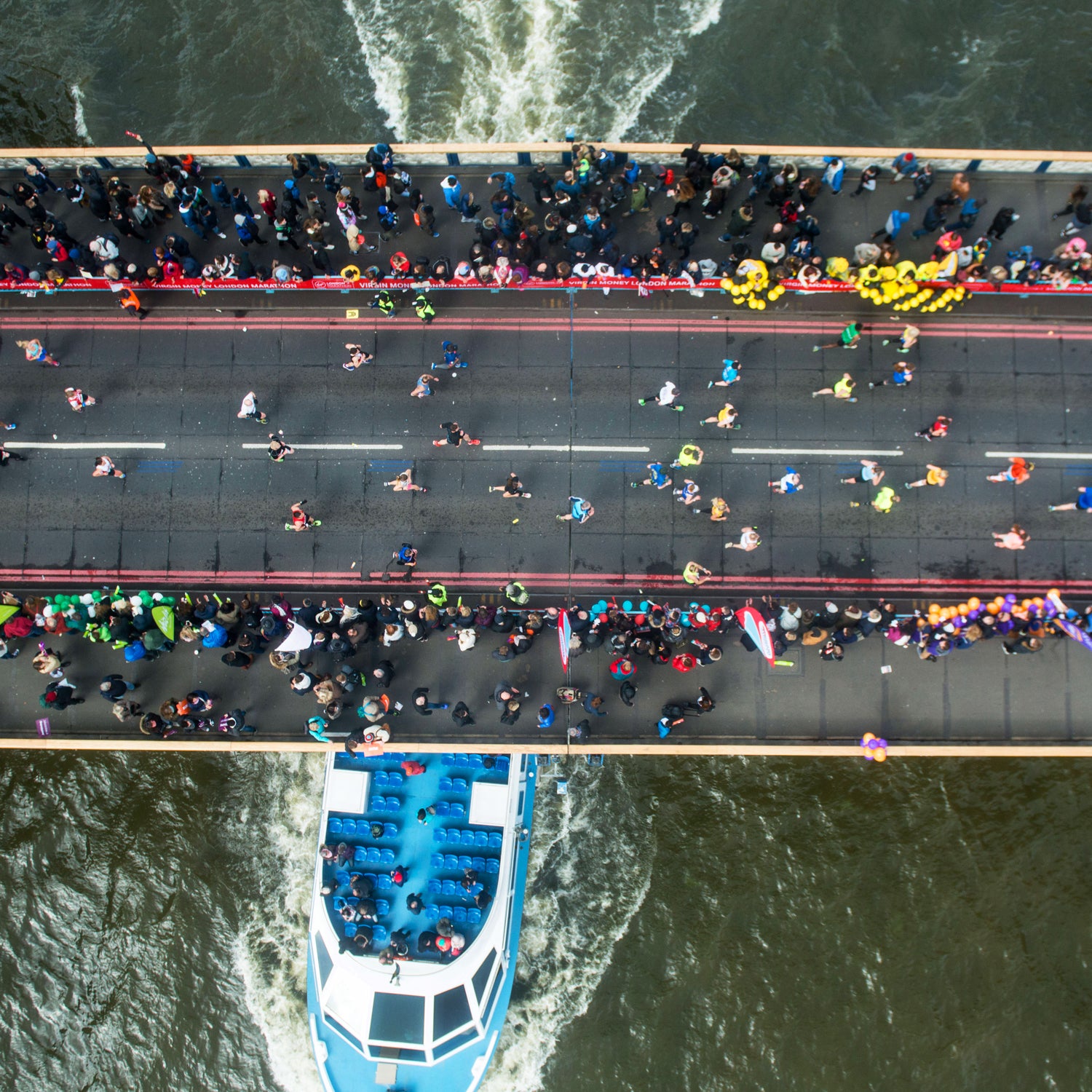It’s been seven weeks since the �����Ի� ��announced that, as a response to the coronavirus pandemic, their races would be postponed until September 14 and October 4, respectively. At the time, the news inspired cautious optimism among some running enthusiasts that we could see an unprecedented glut of high-caliber races later this year; suddenly, there were ��tentatively scheduled to take place between August 8 and November 1. We were innocent enough to believe that it could happen. ��
In behavioral finance, there’s something called the “,” a term meant to describe our tendency to ignore inconvenient truths. Unfortunately, the bad news usually still comes seeping in.��
On March 24, the ��that for the first time ever the Olympics would be postponed for a year. Last week, the ��that all events with more than 5,000 participants were off the table until October 24 at the earliest—indicating that the Berlin Marathon, which is normally held in September, would��be canceled. Meanwhile, the fact that runners around the world are dealing with an ethical (and practical) dilemma about whether to run with a mask��does not bode��particularly well for a robust fall racing season. For context: on the day that the Boston Marathon was initially postponed (March 13), there were roughly 2,000 confirmed cases of COVID-19 in the United States. There are currently over one million. In the absence of a vaccine or effective treatment for the coronavirus, it’s difficult to see how a sport that floods the streets with thousands of sweaty individuals can make a comeback.��
Nonetheless, for now, the 2020 Boston Marathon is still scheduled for September. A final decision on whether or not to hold the race likely won’t be made until some point in the summer.��
“It’s a little bit like the weather, in the sense that, two weeks out, you may have a long range forecast that says there’s going to be rain and thunder and lightning and all this other business, but you don’t overreact to it and you continue your planning,” Dave McGillivray, the 65-year-old Boston race director, tells me. ��
“Then, as you get closer, the credibility of that information gets a little bit stronger and you start making adjustments to address those concerns and those challenges. It’s only a few days out are you able to really know. It’s similar with this, although it won’t be a few days out, but probably like a month beforehand, or six weeks, or something along those lines.”
Hugh Brasher, the race director of the London Marathon, expressed a similar sentiment last week, when he that he “didn’t want to discount anything until it becomes really impossible,” and that a final decision would likely be made before the end of August. Brasher also told ��that he has been communicating with the organizers of the other World Marathon Majors��(Berlin, New York, Chicago, Boston, and Tokyo) to “swap ideas.” As we saw in Tokyo in March, an elites-only marathon might be one potential way to salvage a few high-level races in a year where professional sports—and everything else—have been forced into an indefinite hiatus.��
When it was first announced that Boston and London wouldn’t be taking place as scheduled, the idea of a marathon-less spring was still somewhat abstract. Anyway, our attention was diverted by more urgent matters: what’s a marathon in the face of a worldwide pandemic? But now that the original event dates have come and gone and we’ve become familiar with horrible new phrases like “viral load” and “social distancing,” the absence of those races feels more palpable. For those of us who view them as a kind of seasonal ritual, .��
��“In addition to offering an excuse to drink too much and yell at strangers, sports provide a kind of social circadian rhythm. They are an ordering mechanism, a way to set the clock,” the New Yorker’s Louisa Thomas ��about what it was like to experience Patriots Day in Boston without a marathon. Of course, for fans of world-class distance running, a marquee marathon can feel more like a lunar eclipse than anything that occurs with circadian frequency. The best marathoners in the world generally only race twice a year—there’s an added sting when we are deprived of a chance to see them in their prime.��
London 2020 was set up to feature yet another duel between Eliud Kipchoge and Kenenisa Bekele, the two fastest men ever over 26.2 miles. With the race postponed, Kipchoge and Bekele took part in a , organized by their mutual sponsor, the NN Running Team. Watching this improbable correspondence, I wondered if there could actually be a virtual Marathon Major in the fall, where, say, the world’s top 30 marathoners compete on a network of digitally linked treadmills, or on 400-meter tracks scattered throughout the world at roughly the same elevation. Stranger things have happened.��
I have to admit that watching Kipchoge run a marathon on a treadmill might test the limits of my fanaticism. Could it make for an engaging two-hour live broadcast? Possibly. But let’s hope we never have to find out. I’d much prefer to stick my head back in the sand and dream about seeing him race London in October. ��


